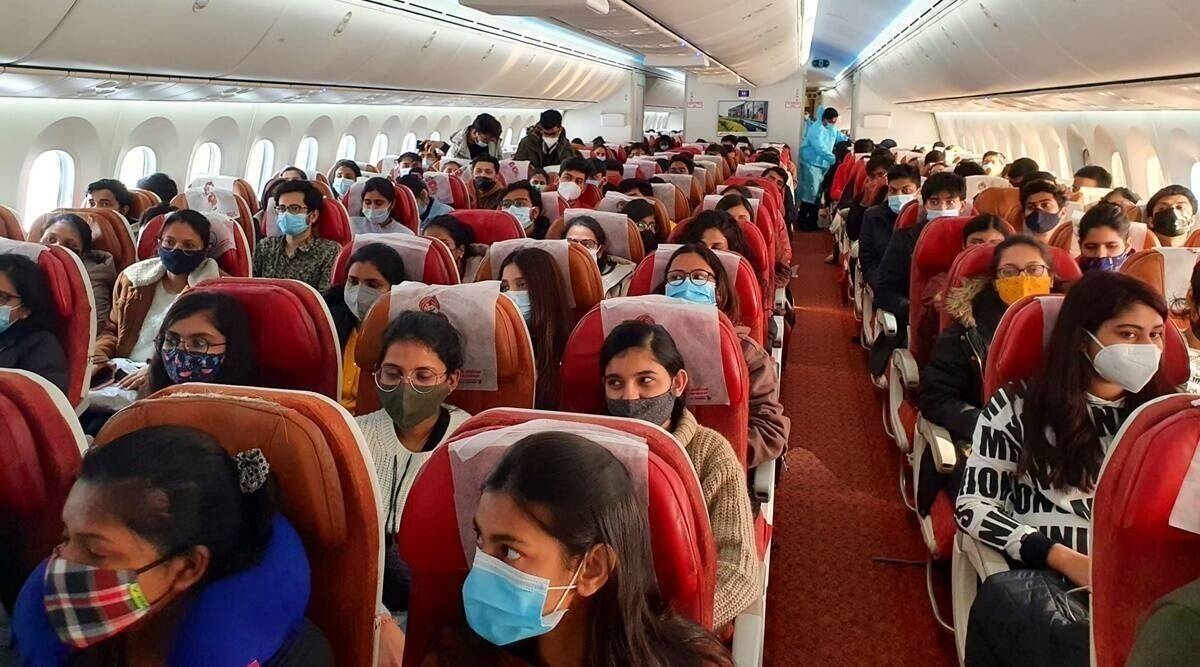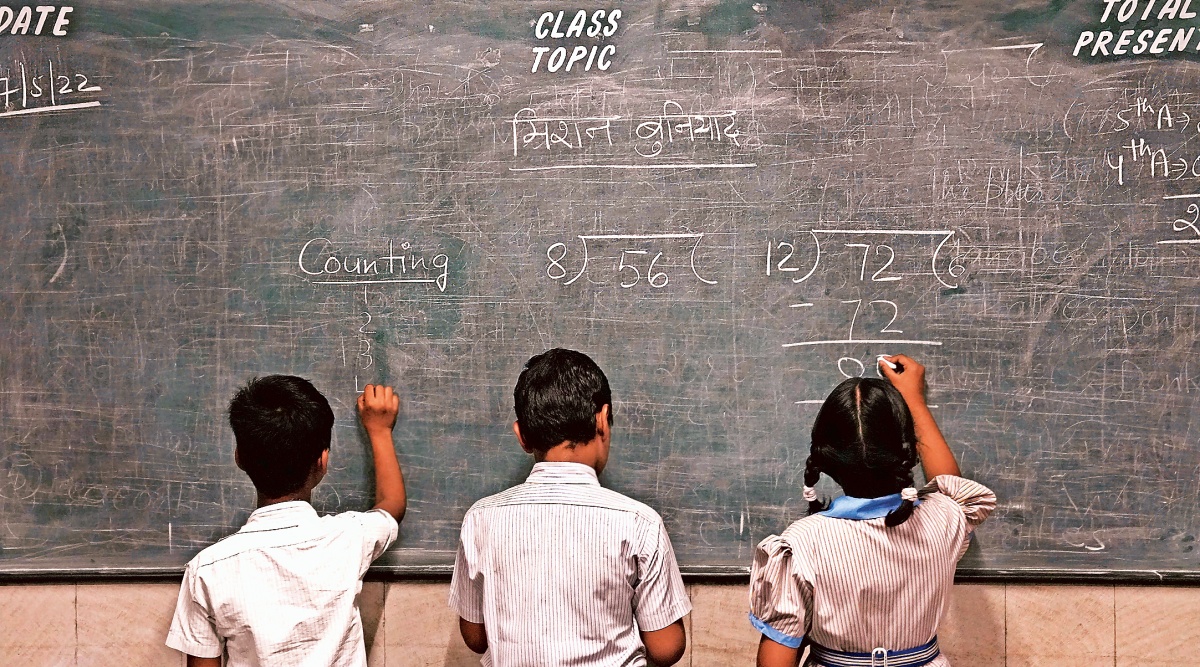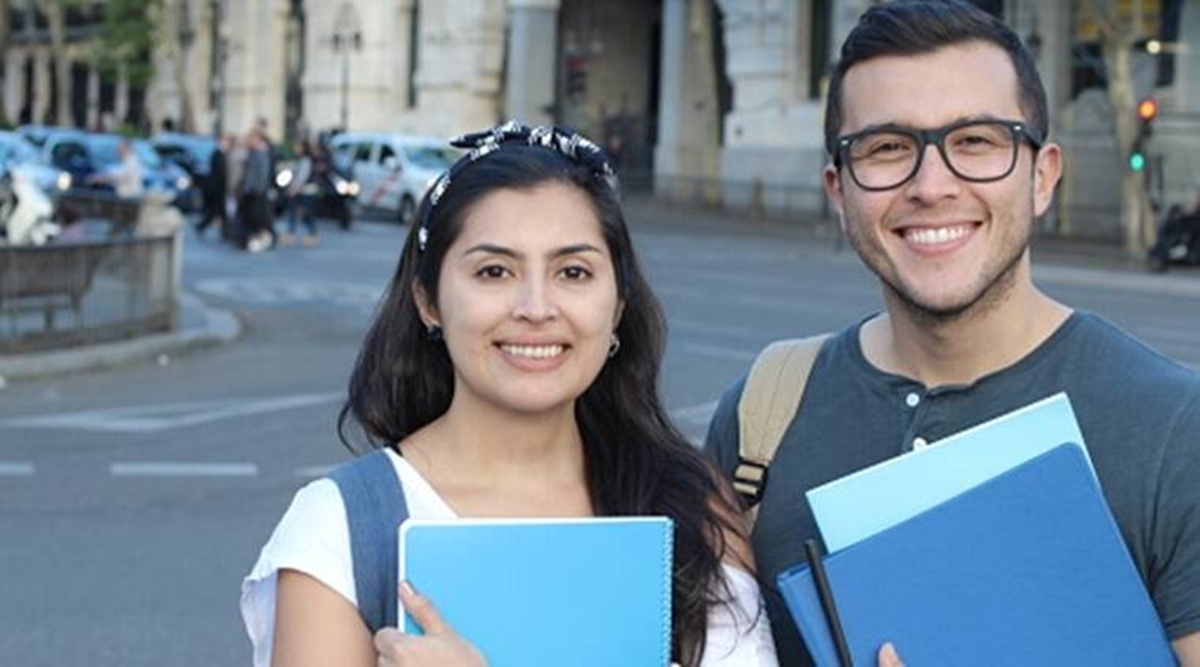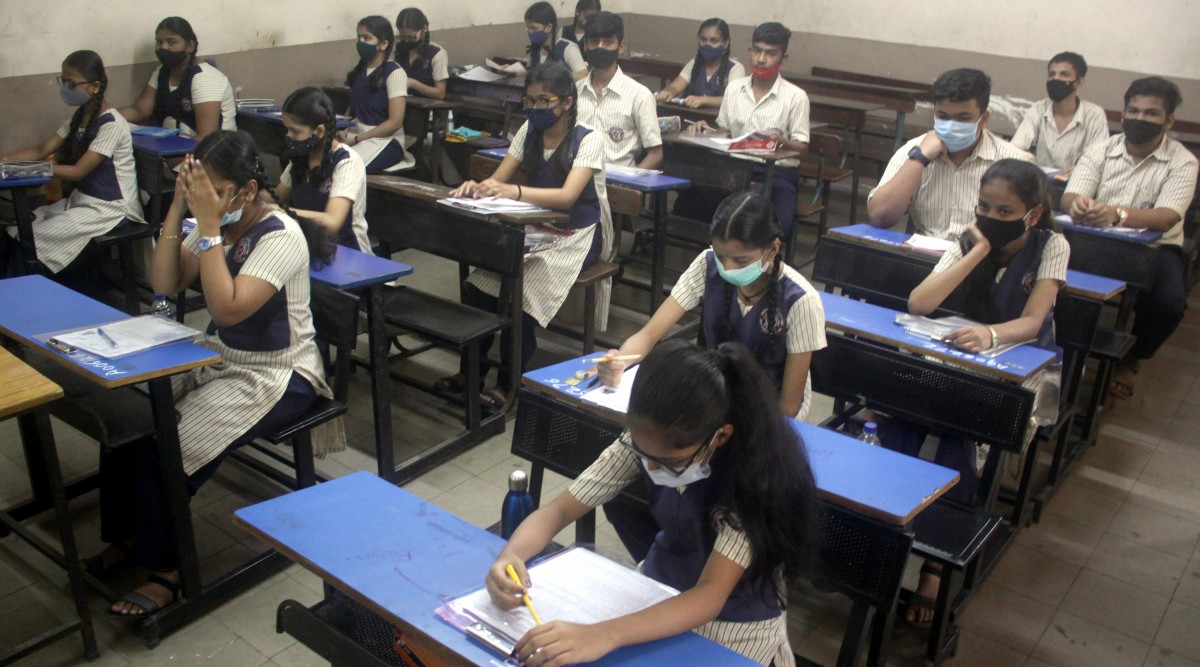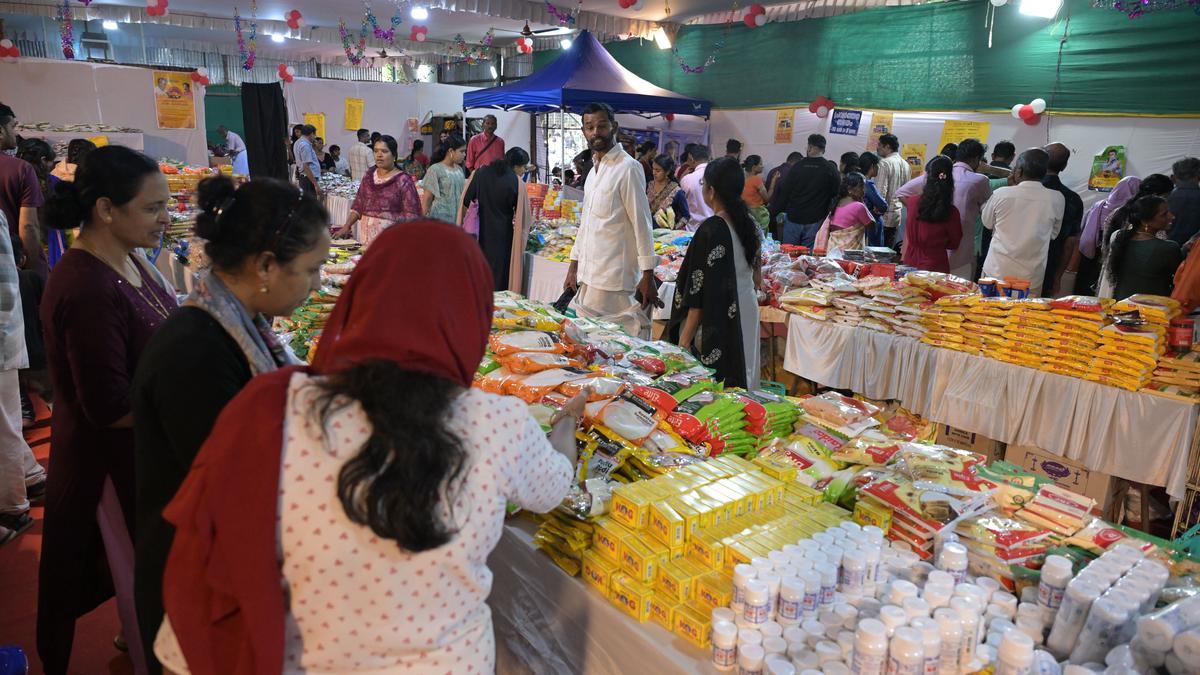NEARLY two months after Indian students started returning to war-torn Ukraine to resume their classes, a fresh escalation of the conflict with Russia — which led to India issuing two consecutive advisories asking its citizens to leave the country immediately – has added to the uncertainty among students.
Despite the fresh tension, the youngsters, mostly students of medicine, have for now decided to stay put in Ukraine, with many of them saying they have no option but to do so. Others say they are waiting and watching before they decide what to do next. Some of the students are temporarily relocating to neighbouring Hungary and Slovakia, which have been issuing 30-day permits at the border, while for the others, the daily sirens and the underground bunkers are gradually becoming a part of their everyday routine.
A fifth-year student of Lviv National Medical University said he has temporarily moved in with his friends in Hungary, from where he has been attending online classes. “There’s hardly any student who is thinking of returning to India now. After all that we have gone through in the past seven months, we just want to complete our degrees in Ukraine. We came back only a month ago after convincing our parents and spending at least a lakh; we can’t go back now,” he said.
On Tuesday, India issued its second advisory in a week asking its citizens to “leave Ukraine by all available means”. In the previous advisory, issued on October 19, New Delhi had warned its citizens against travelling to Ukraine and asked students who returned to the country to leave in view of the “deteriorating security situation”.
It was around seven months ago, in March, that the Russia-Ukraine war forced nearly 20,000 Indian students studying medicine in Ukraine to return home. Since September, an estimated 1,000 students who fled the war have returned to Ukraine to resume their education.
The latest set of advisories come amid stepped-up hostilities – the air strikes and missile attacks are now targeting the relatively safer western Ukraine cities of Lviv and Ternopil – and Russia’s claim that it suspected Ukraine of planning to use a so-called “dirty bomb“ laced with nuclear material. With Western countries rejecting Russia’s allegation as a pretext for intensifying the eight-month-long war, many fear the worst is probably not over yet.
But as the fifth-year Lviv student said, for Indians in Ukraine, the situation doesn’t offer them much of a choice. “We are not getting admission in India and countries such as Hungary, Poland, Georgia and Russia, where we are being offered transfers, are far more expensive than Ukraine. We cannot afford to pay our fee again. The government of India is well aware that we do not have any other option but to stay back in Ukraine… And even if we were to return to India, would our parents let us go back to Ukraine? Not at all. So what option do we have? Most of the students who have decided to stay back in Ukraine are in their fifth or sixth year. It’s not easy to start from scratch,” he said.
Anurag Krishna, a fourth-year student of Vinnytsya National Medical University, said he has no plans of returning to India. “We have to watch for some time. I might shift to some safe place if the situation worsens. But currently we are attending our classes and concentrating on completing our degrees. Indian authorities know very well that we really don’t have any other option.”
Kritee Suman, a fourth-year student of Ivano-Frankivsk Medical University who is from Bihar, said, “What option do we have? Come back to India and then go back to Ukraine again? It’s easier said than done. We might temporarily move to Hungary or Romania if the situation worsens in Ivano [western Ukraine], but at the moment, it’s quite okay here.”
Meanwhile, despite the MEA advisories, students say many of their friends have been returning to Ukraine. “Twelve students arrived in Kviv on Tuesday, a day after Diwali. More are expected to arrive now that the festivities are over,” said a student.
Onkar Dhale, 19, a second-year student at Ukraine’s Bukovinian State Medical University, is set to leave his home in Ahmednagar district for medical college on November 4. He plans to fly Mumbai-Istanbul and from there to Moldova, from where he will proceed to Chernivtski, Ukraine, by bus or taxi.
Dhale says he is aware of the Centre’s advisory, but isn’t changing his plans. “The government has left us with no other option. They cannot give us admission in colleges here and they say they won’t recognise our degrees if we don’t complete 54 months of offline classes. My parents have spent lakhs already. Thirteen students from our batch have already reached there,” he said.
!function(f,b,e,v,n,t,s)
{if(f.fbq)return;n=f.fbq=function(){n.callMethod?
n.callMethod.apply(n,arguments):n.queue.push(arguments)};
if(!f._fbq)f._fbq=n;n.push=n;n.loaded=!0;n.version=’2.0′;
n.queue=[];t=b.createElement(e);t.async=!0;
t.src=v;s=b.getElementsByTagName(e)[0];
s.parentNode.insertBefore(t,s)}(window, document,’script’,
‘https://connect.facebook.net/en_US/fbevents.js’);
fbq(‘init’, ‘444470064056909’);
fbq(‘track’, ‘PageView’);


